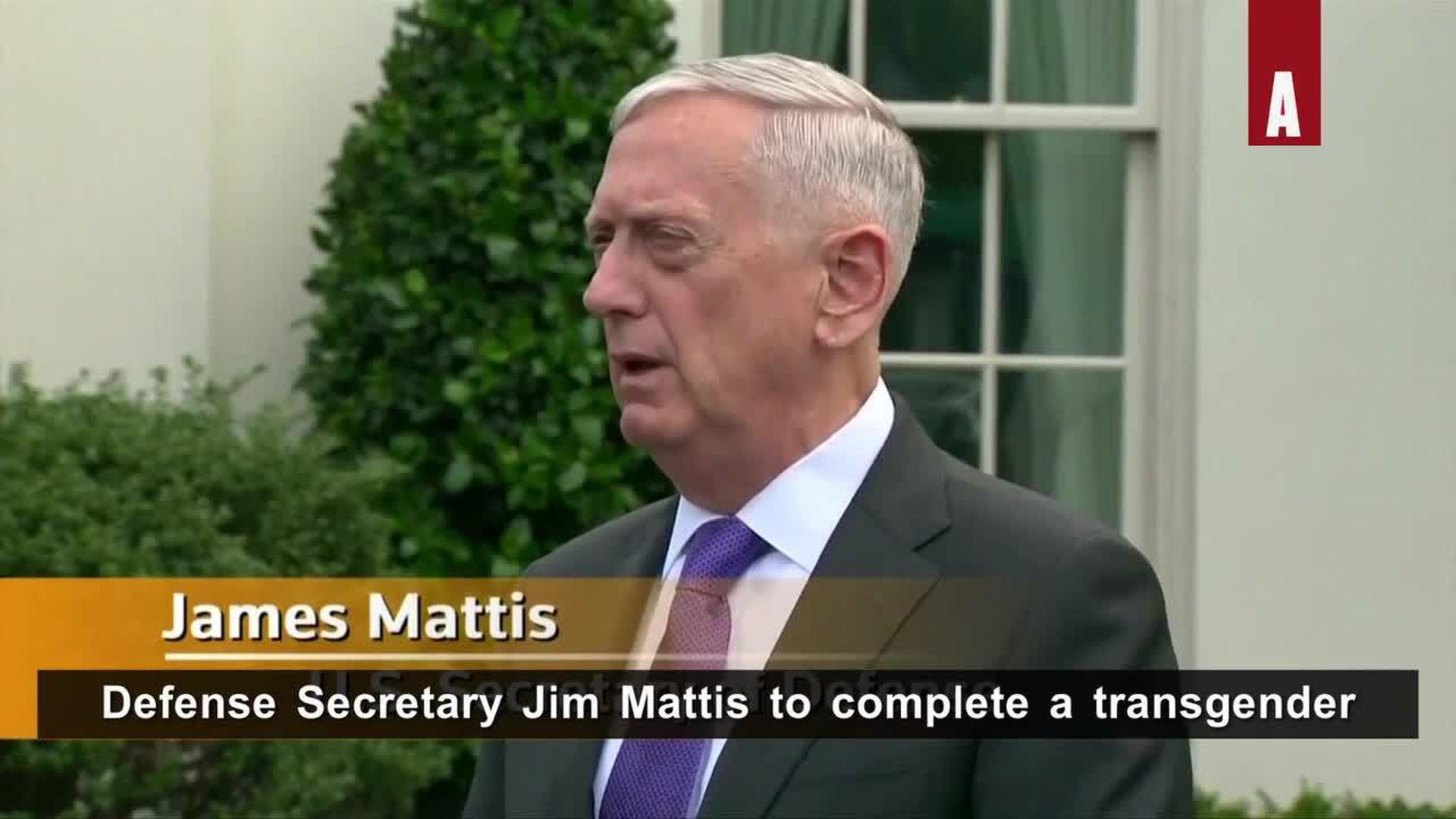U.S. Sens. Kirsten Gillibrand and Susan Collins are trying to block Donald Trump's ban on military service by transgender people.
Gillibrand, a Democrat from New York, and Collins, a moderate Republican from Maine, introduced an amendment Monday to the National Defense Authorization Act -- the military spending bill that must be approved by Congress each year -- that would prevent the armed forces from discharging members just because of their gender identity, CNN reports.
The Senate will vote on the spending bill this week, and it's uncertain if the Gillibrand-Collins amendment will get a hearing, as there are "scores of proposed amendments" to the funding measure, according to CNN.
The amendment, according to Gillibrand's website, would "express a sense of Congress that individuals who are qualified and can meet the standards to serve in the military should be eligible to serve; prohibit [the Department of Defense] from involuntarily separating, or denying the reenlistment or continuation in service in the Armed Forces of, currently serving transgender service members solely on the basis of the member's gender identity; and require [Defense Secretary James Mattis] to complete his review of accession of transgender individuals into the Armed Forces by the end of this year and report the results to Congress."
Their amendment apparently does not address the issue of funding transition-related medical care for transgender military members. An earlier version would have blocked the Department of Defense from ending payments for those procedures, CNN reports, but this one is written more narrowly in an effort to gain Republican support.
Trump announced reinstatement of the ban via Twitter July 26, reversing a 2016 move by President Obama and his Defense secretary Ash Carter to lift the ban. The Obama administration's action meant that the thousands of trans Americans already in the military could be open about their identity without fear of discharge, and the armed forces were scheduled to bring in new trans recruits beginning July 1 of this year -- but that was delayed by Mattis, and then Trump announced the ban. In late August, Trump signed off on a memo regarding implementation of the ban, and the Defense and Homeland Security departments are studying how best to handle the matter. Trans people continue to serve in the meantime, but the revived ban will no doubt mean discharge at some point.
Unlike the "don't ask, don't tell" measure for lesbian, gay, and bisexual troops, the trans ban was never written into law but was a matter of Defense Department policy, so it did not require congressional action to lift or reinstate. However, congressional action could block the ban. Sen. Tammy Duckworth, an Illinois Democrat and decorated veteran, has urged Congress to do so, and Republicans as well as Democrats have denounced the ban.
Gillibrand and Collins both spoke out forcefully against the ban in an online statement. "Any individual who wants to join our military and meets the standards should be allowed to serve, period. Gender identity should have nothing to do with it," said Gillibrand, who is ranking member of the Senate Armed Services Subcommittee on Personnel. "I am proud to work with Senator Collins to introduce our bipartisan amendment to protect transgender members of our Armed Forces, and I will always fight for our brave transgender troops who put their lives on the line to protect our country."
"Our armed forces should welcome the service of any qualified individual who is willing and capable of serving our country," added Collins. "If individuals are willing to put on the uniform of our country, be deployed in war zones, and risk their lives for our freedoms, then we should be expressing our gratitude to them, not trying to exclude them from military service."















































































